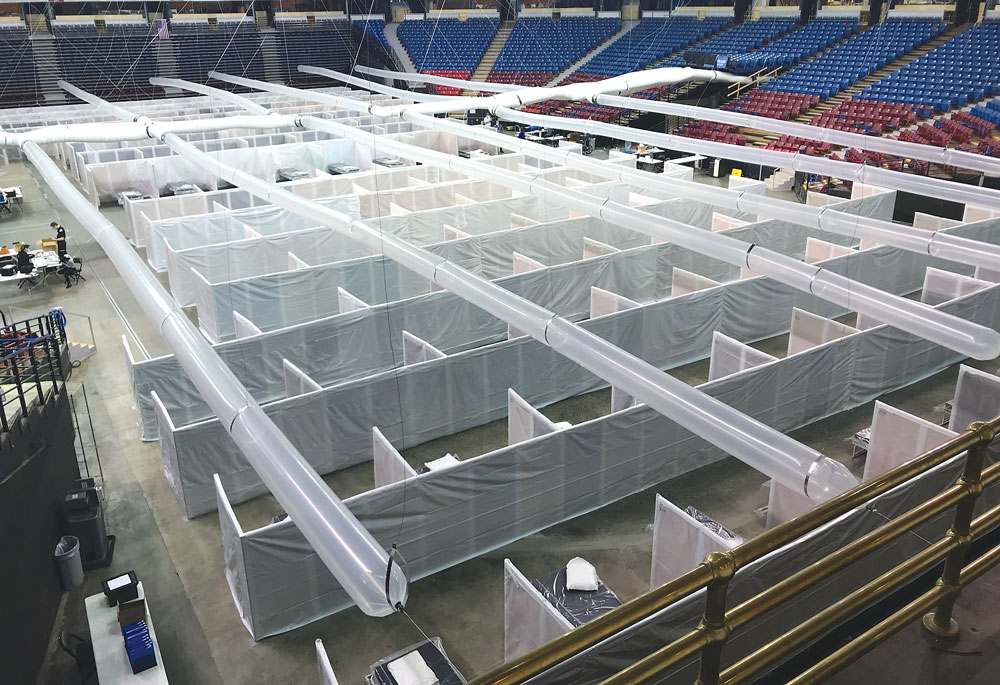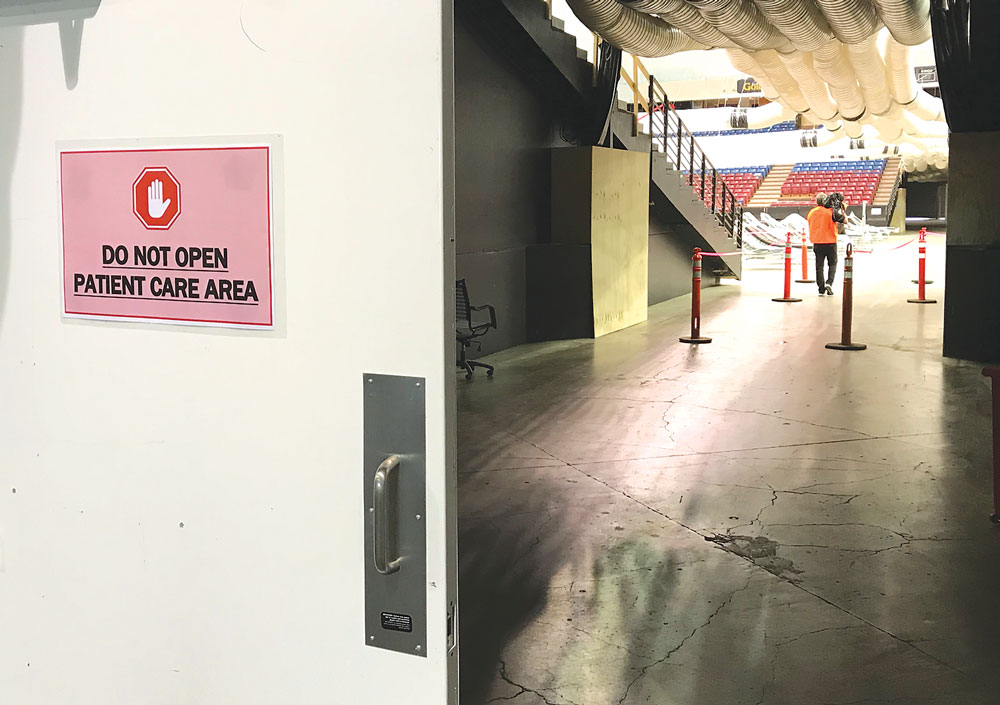For almost 40 years, the Kings have feasted on a narrative that portrays the basketball team as a public treasure rather than a business. The story is fantasy. The Kings are a business. Their goal is to make money for their owners. It’s been this way since 1983, when a Sacramento group bought the team. And it’s true today.
When the coronavirus pandemic wiped out the NBA season and shuttered Golden 1 Center, the Kings, like any business, faced a crisis. Their cash-flow generator was gone overnight. But the Kings found a side hustle. They became hospital landlords.
Since early April, the Kings have rented out Sleep Train Arena, the team’s former home in North Natomas, as a state emergency “alternate-care” hospital. The three-month contract requires taxpayers to pay $500,000 per month. The arrangement was first reported by the Bee, which obtained the contract under a public records request with Gov. Gavin Newsom’s Office of Emergency Services.
In the context of NBA dollars, the money is not much. The Kings pay one player, forward Harrison Barnes, about $294,000 per game. The monthly hospital rent is less than the NBA minimum salary.
But the Kings have lost millions of dollars in income since the NBA shut down in March, when players began testing positive for the COVID-19 virus. Teams are hurting. In a crisis, every little bit helps.
The decision to turn the old arena into a temporary overflow hospital should not have been controversial. Gov. Newsom and state health officials—along with medical experts around the world—feared a surge of virus patients could overrun the limited number of emergency and intensive-care facilities. That’s what happened in New York, which endured at least 300,000 confirmed virus cases and more than 18,000 COVID-19 deaths in March and April.
When Newsom announced his plans to slowly reopen California, he spelled out specific conditions for every phase. The steps included warnings about new surges of hospital patients.
The governor’s timeline for resumption of public life was not encouraging to the Kings and other businesses that trade in mass entertainment. They will open only after the virus is under control—“Months, not weeks,” Newsom says, without putting a number on it.
Optimists look to November or December to resume large public gatherings. But it’s reasonable to think arenas and stadiums won’t re-open until 2021.
There’s been good news on the arena hospital front. During its first month of operation, the Sleep Train alternate-care facility admitted no patients, a spokesman for the Office of Emergency Services told Inside Sacramento.
About 300 health care providers are present in case a surge comes, but they hope to maintain their perfect record of zero customers. If the arena medical staff gets busy, the situation for California will be bad.
The arena hospital deal has not escaped controversy. The pain was self-inflicted by the Kings and Newsom. The team and governor tried to present the rental arrangement as a gift to the residents of California when it was no such thing.
Newsom and Kings chairman Vivek Ranadive held a press conference and showered each other with praise. Among the spray of self-serving bouquets was no mention of the $500,000 monthly rent.
The governor said the Kings were a fine example of “philanthropy of scale.” Ranadive promoted his global vision and repeated the 2010 public relations cliché about the Kings being “bigger than basketball.”
When the contract became public, Newsom and Ranadive both looked ridiculous.
There was no reason to pretend the Sleep Train agreement was anything other than what it was—an example of the state acting proactively in crisis, and a business trying to make a few bucks while helping out.
Even people who believe the Kings are a community treasure would understand.
R.E. Graswich can be reached at regraswich@icloud.com. Follow us on Facebook, Twitter and Instagram: @insidesacramento.









